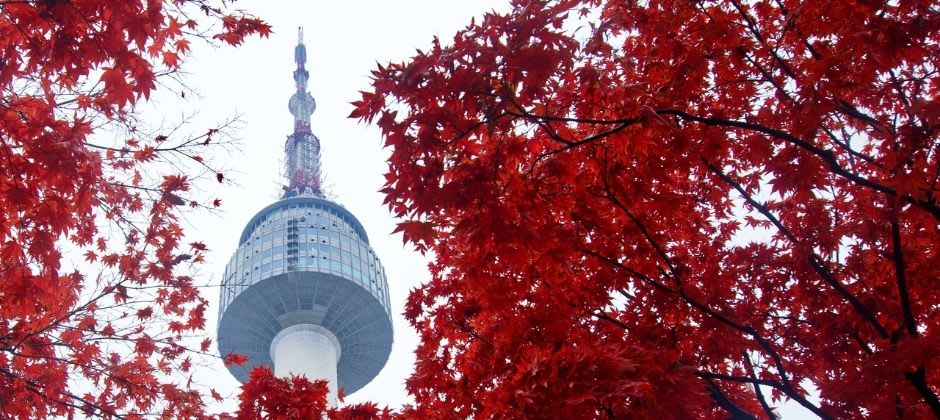Study in South Korea: Language & Culture
South Korea has one official language: Korean, although Japanese, English and Mandarin are widely spoken and understood. Korean is a language isolate, meaning that it’s a language that is unlike any other, living or dead. Korean has its own grammar system, vocabulary and alphabet: Hangul script.

South Korea has one official language: Korean, although Japanese, English and Mandarin are widely spoken and understood. Korean is a language isolate, meaning that it’s a language that is unlike any other, living or dead. Korean has its own grammar system, vocabulary and alphabet: Hangul script.
South Korea has been in existence since 1948, when it was separated from North Korea. This ultimately led to the Korean War. In the decades since separation, the South Korean dialect has been influenced by globalization. As such, the Korean spoken in each countries is actually quite different, although still mutually intelligible.
South Korea is a safe country. There’s an extremely low rate of crime and there’s no recent history of terror attacks. The only real danger comes when North Korea occasionally testfires a rocket along the South Korean coastline. South Korea is a free country, with human rights and civil liberties enshrined in the constitution. Regular free elections are held that often result in peaceful transfers of power.

South Korean culture, whilst having been influenced by the West since 1948, is still pretty unique. South Koreans are, by nature, extremely private. Any behaviour that isn’t private or orderly, like shouting or drunkenness, is frowned upon in South Korea. Politeness and gratitude are also core South Korean values, so expect to thank or be thanked no matter how small the service or gesture may be.
South Korea is a fairly socially conservative country. Although attitudes on many issues, particularly LGBT rights, are shifting rapidly, with Pride parades now commonplace in Seoul and Daegu each June.
As safe as South Korea is, it’s still technically at war with North Korea. The Korean War ended in 1953 with a truce, not a treaty. Relations between the two Koreas are capricious. There is regular contact between the leaders of both countries. They even sometimes meet in the DMZ (Demilitarized Zone) that separates the two countries. However, things can turn quickly. As North Korea is a nuclear state, the international community always speedily moves to calm things. There have been few outbreaks of serious violence since 1953. In fact, tourists often visit the DMZ.
Study in South Korea
Want an overview of this remarkable country? This section looks at South Korean culture, the landscape, the unique language and its main sectors. This section also summarises why a South Korean degree can give you a competitive edge.
Education in South Korea
Want to learn about how the higher education system works in South Korea? South Korea is becoming a go-to destination for a variety of students, given its great reputation, reasonable fees and its fascinating culture and language. Take a minute to find out more about the structure of the education system in South Korea!
Student Visas
Do you need a visa to enter South Korea to study? Learn more about the student visa process, and what you need to enter the country, depending on your citizenship. Don't worry! South Korea's unusual approach to visas actually makes things surprisingly simple.
Housing & Living Costs
No matter where you study abroad, it’s important to create a budget in advance so that you’re prepared. Therefore, we’ve detailed average living and housing costs so that you can get a better idea of what you would be paying as a student in South Korea.
Tuition Fees & Scholarships
Tuition fees for degree programs in South Korea can vary. Both international and domestic students are expected to pay tuition fees in South Korea, but these fees can vary a lot. We've put together information on how this works, and on the fantastic Global Korea Scholarship, in this section.
Application Process
Learn more about the standard application process in South Korea. There's no national application portal, so this section covers what you'll generally need to do when applying to individual schools in South Korea.
Programs
Ready to look at education in Asia? Use our search engine to find and compare top programs in Asia today!

Author
The Keystone Team is comprised of experienced educators and advisors dedicated to providing valuable resources and advice to students all over the world.